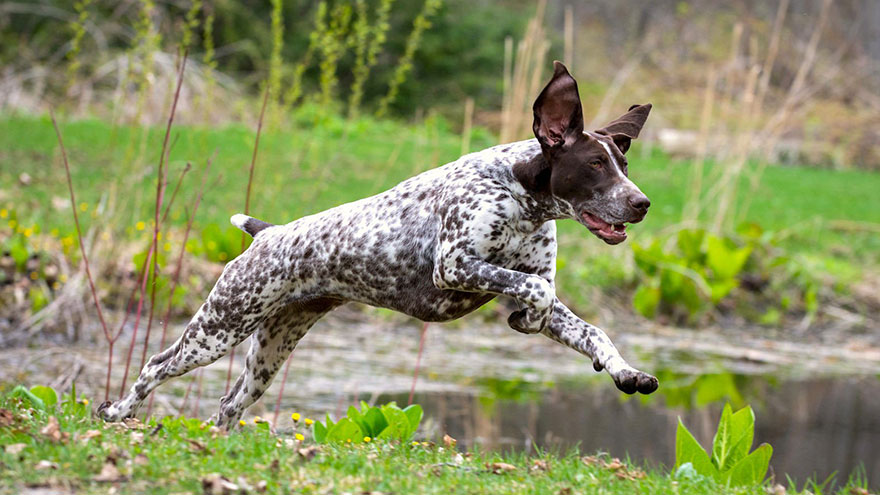German Shorthaired Pointer Health Guide
German Shorthaired Pointer owners have a strong network of information about the health needs and special requirements of this very popular hunting/competition breed.
Most owners can depend on an intelligent, active, and healthy dog that will bring few major problems.
However, over-breeding and careless breeding have caused problems in some bloodlines.
Health Problems in the German Shorthaired Pointer
Most of the problems heard about can be avoided by working closely with a top-quality, reputable breeder. This should ensure that you get a healthy puppy from good parents, as well as a young dog that is socialized properly with humans and other dogs. The German Shorthaired Pointer was specifically bred as a hunting companion and working dog so this breed does best with regular exercise, especially in an open field
This breed has a short coat and tight skin, which might mislead you into thinking it does not do well in cold climates. However, experienced owners will tell you that this dog seems to do fine in most climates, especially if they can be active.
Additionally, the German Shorthaired Pointer usually lives about 12 to 15 years, especially if provided with top-quality food. You might want to consider fresh foods in homemade meals containing lean meats and some vegetables. Now, if you feed commercial dog foods, use only the best quality to avoid excessive amounts of grain such as corn, wheat, or soy, which could cause allergy problems.

While considered a health choice, the German Shorthaired Pointer is prone to some health risks such as Addison’s disease, which is the inadequate secretion of cortisone from the adrenal glands and chronic superficial Keratits, long-term inflammation of the cornea. Other possible health risks involve hip dysplasia, which is a joint disease capable of being detected by an early test, as well as progressive retinal atrophy that first affects night vision and then all vision. We recommend asking your veterinarian about these and other possible problems associated specifically with this breed.
The breed may be subject to bloat, as it is sometimes called although the formal term is “gastric dilatation-volvulus (GDV)” This condition can be serious, even life threatening for larger breeds. With the habit of bolting food and drinking large amounts of water, the condition can develop and move into something much larger. Feeding smaller meals is often a recommended treatment although medications to help empty the stomach are also available.
Many dogs can experience problems with sensitive skin though a careful owner can detect most of these conditions before they become serious. In addition, with German Shorthaired Pointers, you should also be aware of the possibility of epilepsy.
Again, if you work with a reputable breeder who screens for various medical conditions and is careful to use extremely healthy breeding stock, you can avoid many of the problems mentioned.
One of the interesting developments is the establishment of the working dog program for German Shorthaired Pointers and the emphasis on keeping alive the natural tendency of this breed to be hunting/competition dogs.
Clubs and organizations in the U.S. and other parts of the world have focused on quality breeding of the German Shorthaired Pointer, as well as bringing the natural traits and qualities out in this excellent breed.
Read More About German Shorthaired Pointer
- German Shorthaired Pointer Breed Information
- German Shorthaired Pointer : 10 Most Common Questions
- German Shorthaired Pointer Training Guide
- Owning a German Shorthaired Pointer : Breeder Recommendations

